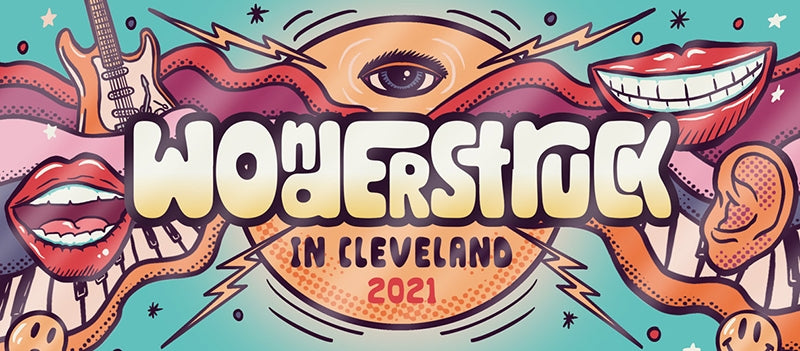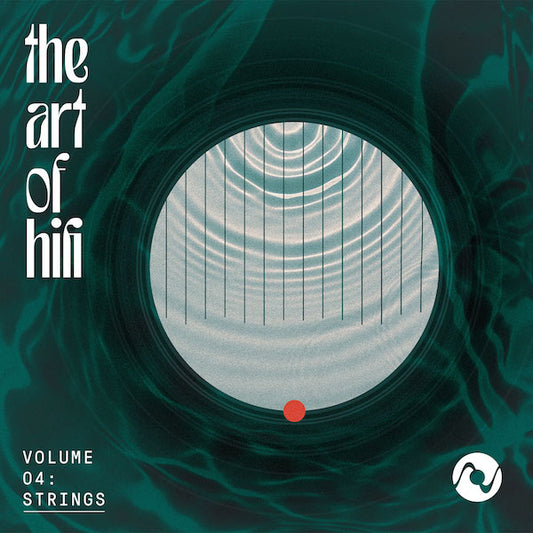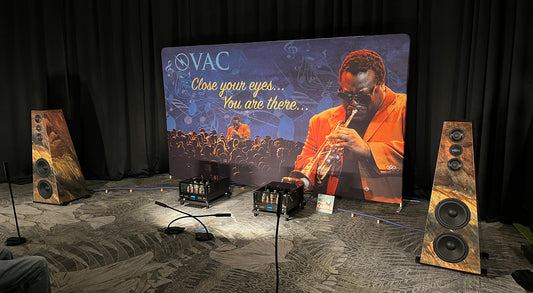We are proud to have Cliff Chenfeld as a Copper contributor. You may not know that along with Craig Balsam, he was the co-founder of indie label/music publishing company Razor & Tie in 1990 and co-creator of the immensely popular Kidz Bop franchise in 2001, which has sold more than 16 million albums worldwide. In 2019, Cliff became a partner in Ohio’s WonderStruck and WonderBus music festivals, which are set to happen again in 2021 after a 2020 hiatus. We interview Cliff here.
Frank Doris: You left a law practice to found Razor & Tie in 1990 with fellow student Craig Balsam. What made you guys make what must have seemed such a radical move? I know the two of you were musicians.
Cliff Chenfeld: Music was always our first love and almost immediately after graduating from law school, we began writing songs together. We didn’t enjoy being lawyers and were looking to do something in music as an alternative. Unfortunately, we were competent but not exceptional songwriters and soon realized that if we wanted careers in music, we were going to need to come up with some other ideas. By the way, we named our songwriting project “Razor & Tie” and one of the songs we wrote was [also] called “Razor & Tie.” A few years later, we came upon the idea of putting together a compilation of ’70s hits and advertising them through direct-response TV commercials. This was just at the dawn of the CD era so many of these songs were not available on CD.

We created The ’70s Preservation Society and named ourselves the co-chairmen. The CDs sold well and we were on many national TV talk shows (CBS This Morning, The Joan Rivers Show and others) where we extolled the greatness of the ’70s, often with tongues firmly in cheeks.
FD: Where did you get financing?
CC: We did it ourselves from the meager amount of money we saved as lawyers. Our generous and supportive wives also helped us.
We didn’t license superstars like Elton John or Led Zeppelin, not that we could have if we tried. The first CD featured on- hit wonders like “Billy Don’t Be A Hero” (Bo Donaldson and the Heywoods) and “Seasons In The Sun” (Terry Jacks). We were having fun with the decade. It’s hard to remember now, but at the beginning of the ’90s, the ’70s were sort of a pariah decade, stuck between the hippie 1960s and yuppie 1980s but we figured that a bunch of folks who grew up in the ’70s were turning 30 in the early 1990s and that they would become nostalgic for their youth and start jamming their memories on everyone else. Fortunately, we were right.
FD: For a while you focused on reissues. How did this evolve into your becoming an indie label, and a significant one, and signing original acts?
CC: After establishing our compilation business (sold exclusively at that time via TV spots and 800 numbers, “not available in stores!” until the late ’90s), we expanded to reissues and anthologies a few years later. The CD format was new and the major labels were very selective with regard to what they released on CD. They were focusing on their big sellers and the great bulk of their catalogs was not available on CD. So we began to license titles from them (and the occasional indie label) as well as [offering] career anthologies from underrepresented artists. It was a great business, we released a bunch of titles from artists that we loved and brought attention to others who received a new look after having been ignored for many years.
We took great care with the packaging and A&R (artists and repertoire development). It also allowed us to create a retail business [because up to] that date, we had only sold albums on TV. Other than (record and entertainment company) Rhino, we became the leading reissue/anthology CD label in the country. The retail experience that we gained via our reissues paved the way for us to start signing new artists.
FD: Did the fact that CDs were becoming established play into your efforts?
CC: Yes, the new format created all of these opportunities to revisit and release older music, and that was really the foundation of the label at the outset. We were also fortunate in that the major labels could have had their own compilation or reissue business [at the time]; they chose not to and we were the beneficiaries of those decisions.
FD: There seemed to be a sense of humor permeating Razor & Tie’s work. Did that reflect your own personalities?
CC: I suppose. it was pretty wild to go from being a corporate lawyer to the co-chairman of The ’70s Preservation Society in one year and telling Joan Rivers how Pet Rocks changed the world on national TV. Craig and I like to have fun and I think Razor & Tie reflected our personalities more than taking depositions in securities cases on Wall Street.
FD: How did you do things differently from a major label like, say, Columbia or Warner Music Group?
CC: Our company’s success was based on counter-programming versus major labels and larger companies. They had no interest in selling music on TV, it wasn’t cool. We jumped in and made it fun and irreverent. They initially didn’t see the value of releasing much of their catalog on CD, so we dug in. Kids’ music wasn’t sexy, who could be bothered, and we came up with Kidz Bop. Later, as the major labels started to ignore the heavier side of rock, we went in and became the most successful label in the country at the active rock radio format. (Rock radio has basically split into three formats, Alternative, Active Rock and AAA, or Adult Album Alternative. Active Rock/mainstream is where heavier bands live, with lots of guitars; more aggressive-sounding bands like Shinedown and Bring Me The Horizon are staples of the format and bands like Metallica and AC/DC are the icons). We also utilized direct-response TV to see whether customers were interested in our compilations. We would make an inexpensive TV spot and do a small TV buy on select stations to see if we got any response. That’s how we started Kidz Bop. Once we had positive results, we would get more aggressive.
That was a very different approach than [what the major labels were doing in] spending hundreds of thousands of dollars to see if consumers liked what you were offering. We ended up being the top direct-response music marketer in the country, and after a while, the major labels, not having that capability in-house, would hire us to market their releases.
FD: You’ve had some great artists, like Dar Williams, Graham Parker, Joan Baez…and who is this Cledus T. Judd guy?
CC: The first artists that we signed were Graham Parker and Marshall Crenshaw, established artists who we loved who had an existing audience and were off their major label deals. We thought that was a smart way to enter the new music world. Dar Williams was our first signing of a “new” artist and we had a great deal of success with her and are very proud of the amazing albums that she recorded that we had the privilege to work on. For a brief period in the ’90s, Cledus T. Judd was the Weird Al of Country and we had a gold album with him. We released some great Grammy-nominated Joan Baez albums and we also co-produced How Sweet The Sound, the documentary on her that was part of the American Masters series on PBS. Later as the heavier side of rock became of less interest to the major labels, we began to focus on that genre and became the number one label in US at the active rock radio format with hits from The Pretty Reckless, All That Remains, Starset and more.
 The Pretty Reckless. Courtesy of Wikimedia Commons/Samuel J. Rodrigues.
The Pretty Reckless. Courtesy of Wikimedia Commons/Samuel J. Rodrigues.
FD: Since we have an audiophile readership, tell us about Analog Spark, which was launched in 2015 and releases albums on SACD and vinyl.
CC: When the vinyl resurgence really took off in the mid 2010s, we once again went to major labels and other rights holders and re-released amazing albums that had not been available on vinyl for years. We spared no expense on packaging, sound, liner notes and the like. It was a bit of a return to our roots and we were thrilled to help folks rediscover amazing music.
FD: You have new ownership – the Concord Music Group (now Concord) – as of 2015. How has this affected the company and your role in it?
CC: Concord bought Razor & Tie/Kidz Bop in 2018. Craig and I play no role in the company today.
FD: Tell us about Kidz Bop. What made you decide to do this in 2001 when the company was created?
CC: In 2001, Craig and I each had three young children and many of our peers were troubled by the explicit lyrics of Eminem, 50 Cent, Britney Spears and the like while at the same time many of their children thought that Barney, Sesame Street and the like were too babyish for them. We came up with a solution for both. The parents could rely on us to ensure that what the kids heard was appropriate and the kids were excited about the access to pop music.
FD: You re-record songs, often in “clean” kid-friendly versions with changed lyrics. How does that work? Do you ever get complaints from the original artists? How are the royalties shared?
CC: The publishers and songwriters of the songs are paid and we had great relationships with them as they would see significant revenue from our recordings.
FD: It’s become hugely successful, with live touring and other spinoffs. How did this evolve?
CC: The brand became somewhat ubiquitous and it really stood for something – cool for kids, safe for parents. As time went on, we expanded that concept to the live business, merch, international tours and releases and our own channel on Sirius XM, all guided by the same principle.
 Kidz Bop 2021, available on vinyl!
Kidz Bop 2021, available on vinyl!
FD: According to Wikipedia, Kidz Bop is No. 4 on Billboard’s list of the Top 10 albums of all time, beating out Bruce Springsteen and Madonna with 22 albums on the Top 10. How does that make you feel?
CC: It’s pretty crazy, certainly a testament to the longevity of the brand as well as its consistency. I guess Bruce and Madonna better start releasing more albums.
FD: Tell us about your involvement in Ohio’s WonderStruck and WonderBus Music Festivals. I know you’re originally from there.
CC: Denny Young and Steve Lindecke of The Elevation Group created the Cleveland festival in 2016 and I knew them through their management of a few artists on our roster. I liked their concept – a localized music festival in midsize markets with quality acts, reasonable budgets and a very engaged community. I grew up in Columbus and thought that would make a great festival market as well so in 2019 with Denny and Steve, we created the WonderBus festival in Columbus and put the Cleveland and Columbus festivals under one company in which I am a partner. We had to take 2020 off due to the pandemic but are very excited about our lineups in 2021 (Wilco, Portugal The Man, Kesha, Black Pumas and many others) and our ticket sales are very strong.
FD: With all this other stuff going on, what made you decide to do these festivals?
CC: I love attending music festivals, I’ve been going to Jazz Fest in New Orleans since 1990 and always try to work in areas that I’m passionate about. After selling Razor & Tie and Kidz Bop, I was interested in getting into the live space and thought that the niche festivals market was a logical place to go. Reminded me a bit of our counter-programming at Razor & Tie/Kidz Bop; start a little smaller, outside the established world and go from there. We aren’t trying to create a new Coachella; it’s a very different approach.

FD: Of course, the pandemic has hit the live music industry hard. How have you survived 2020, and what do foresee for 2021 and beyond? How will live music recover? What will we have to do to ensure the safety of the attendees, performers and the people working the events?
CC: I’m very bullish about live music and the festival business in the second half of 2021. Sales have been strong across the board for festivals and fans are ready to share amazing experiences together. We are following state guidelines, [and] evolving industry standards and protocols and will make every effort to insure that folks have a safe, fabulous time.
FD: Music is in your blood. How do you keep things fresh and exciting?
CC: I listen to new music constantly. There are so many wonderful new artists out there and streaming provides an endless opportunity to discover. It’s overwhelming, which is why I feel lucky to do the Be Here Now column for Copper and playlist to help folks hear new music and artists that they would otherwise miss. I also make an effort to discover music from the past that I missed. Although I feel pretty well-versed in popular music from the early ’60s on, there are countless numbers of artists, albums and songs that I missed so I make an effort to catch up on older music as well.
FD: Where do you see the music industry in five or ten years from now?
CC: I’m very optimistic. There are a variety of ways to monetize music that were not meaningful 10 years ago – streaming, satellite radio, gaming and the like. Obviously, there is always the possibility of disruption, but consumers have embraced various distribution methods of music that provide a foundation for a sustained business. It is a far cry from 10 to 15 years ago when the industry was facing an existential question of survival.
I do think that in the stratified digital world that we live in, many great artists live on the fringe and I hope we have an era where there is more of a correlation between great music and commercial success. If you think about 1969, the Beatles, Creedence, Sly and the Stones were the biggest artists and [also] amongst the best. In 1984, it was Prince, Michael Jackson, Madonna, the Police and Springsteen. Would be nice to see more great contemporary artists have that kind of mainstream success. We’ll see.
FD: Are there any new artists you’re excited about?
CC: Way too many to count. What’s a new artist? If you talk about artists that have emerged in the last five to 10 years, I’m a huge fan of Tame Impala, The War on Drugs, St Vincent, Father John Misty, Jason Isbell. Newer artists that I like – Rufus Du Soul, Michael Kiwanuka, Sault, Mitski; there are so many. Go to Be Here Now, you’ll find lots of them there.
FD: Is there anything else you’d like to add, like information about your publishing company or other endeavors?
CC: Razor & Tie had a publishing company that was very successful with Number 1 songs including Blake Shelton’s “God Gave Me You” and “Home” by Philip Phillips. Also, Craig and I own RT Industries, which owns master recordings from Sugar Ray, Sheena Easton, Fat Joe and many others.
I am very lucky to have had Craig as my partner. We have always worked well together, complimented each other and remain very close friends.

Follow Cliff on social media:
Instagram: @cchenfeld
Twitter: @ChenfeldCliff



